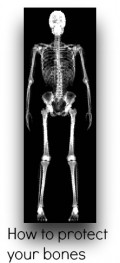David Wolfe Breaks Common Nutritional Myths

David Wolfe: Best Raw Food Diet
Nutritional Myths
When it comes to your health, it is important to always make the right choices. But sometimes, people's mind are shrouded by all these false information that it is difficult to decide which choices are actually right and which are considered bad for you. Raw foo dist and healthy living advocate David Wolfe has made it easy for you by identifying the most common nutritional myths and settling the truth once and for all.
Who is David Wolfe?
David Wolfe has innovated the Healthy Living Program, which outlines different diet programs and some of the findings to Wolfe's extensive research efforts since he started his advocacy. One of the most distinctive features to his advocacy is in eating raw foods as part of your diet plan. He holds a degree in living nutrition, which makes him an expert voice in this field. This is one reason why his program has continually grown over the years since he first introduced it and is fast gaining popularity as the evidence of its effectiveness has opened the eyes of many.

His Healthy Living Program
There is a large scope consisted within Wolfe's Healthy Living Program. The different components of his advocacy towards healthy living are discussed in each of the books that he published, including Amazing Grace, Eating for Beauty, Naked Chocolate, among others. Each of these have the same goal: to promote a healthy lifestyle that will bring about improved health and natural healing. Wolfe utilizes this knowledge drive to open awareness and create more opportunities to promote better health and increase longevity.

Nutrition Myths
Identifying Common Nutritional Myths
When it concerns your health, it is best to settle for the facts of science. That way, you can be assured that whatever food you include in your diet consists of proper nutrition that will enable you to gain all the essential nutrients for proper function. David Wolfe has discussed some of the most common nutritional myths there is and provide clarification for them to properly educate everyone about what is truly beneficial for their health.

First Myth: Role of calcium in building bones
For most part of your life, you probably believed in the idea of drinking milk so you get enough supply of calcium in your body to strengthen and build your bones. Although calcium is beneficial to the body, this is not solely responsible for increasing bone density. This was according to one of the most common nutritional myths disclosed by David Wolfe.
This idea is widely accepted that you can easily purchase calcium pills off the counter since there is a growing number of osteoporosis and other bone problems, particularly amongst women. Therefore, there is a corresponding increase in the demand for calcium supplements in the hopes of reversing those conditions and repair bones.
Apparently, calcium is not the main source of minerals that will increase bone density to prevent bone defects. Although bone is made of calcium, it only cause as much as 1 or 2 percent of increase in your bone density, which is not exactly enough if you wanted to improve bone strength. This knowledge shed by David Wolfe will enable people to better understand or seek for other alternatives that will effectively build stronger bones.
Second Myth: Increasing bone density with silicon and magnesium.
Okay, so calcium does not build bones as previously thought or believed in. There are two sets of question that most people might add up to this. First, what other minerals help to build bones or increase bone density? Second, where can you get these minerals?
To answer the first question, David Wolfe suggests not one, but two, minerals that can offer a suitable alternative to calcium in helping strengthen your bones. These two minerals are silicon and magnesium. They are known to effectively treat weak bones and bone defects for an overalll healthier bone system.
For the next question, David Wolfe surprises many by offering some of really good sources of both minerals. Cacao is a great source of magnesium. And as much as magnesium helps to strengthen your bones, it does the same to your teeth by introducing natural chemicals that will counter the effects of Streptococci mutans in your teeth, helping prevent the formation of cavities. On the other hand, there are several herbs that make a great source of Silicon. Among those are alfalfa, nettle, horse tail, and oat straw.

Third Myth: Benefits of chocolate for your teeth.
All chocolate lovers will probably be thrilled about one myth that David Wolfe has disclosed. This is about the effect of eating chocolate on your teeth. As a child, how many times have your parents warned you about eating too much chocolate and how it can cause you cavities? This isn't apparently true, according to Wolfe.
As mentioned in the second myth, cacao is a great source of magnesium. And as you know, cacao beans is what is mainly used to produce chocolate, or at least those organic types of chocolate. Cacao helps in building stronger teeth and introduces natural chemicals that will fight bacteria that cause cavity in your teeth. The emphasis on eating organic kind of chocolate is important since commercially produces ones contain too much sugar. The sugar content in chocolates is responsible for teeth damage.
Fourth Myth: Chocolate helps increase metabolism.
People who desire to shed off their excess body weight tend to abstain from eating chocolate since it has long been considered to cause weight gain. But did you know that it actually does the reverse? This was according to studies conducted by David Wolfe and one of those nutritional myths that he has exposed. As it turns out, chocolate is actually a good type of food to eat for those who want to lose weight due to its ability to increase your metabolic rate and also as an appetite suppressant.

Fifth Myth: Only natural vitamin C offers real benefits.
According to Wolfe, vitamin C is one of the best form of vitamin that your body can get. But you need to be more critical, especially when buying vitamin C supplements off health stores. There is a growing number of synthetic vitamin C produced and sold in the market. So, you need to steer away from them and instead opt for the natural ones to ensure that you can experience its benefits. There are several plants or herbs that you can make fruit juices out of and get substantial amount of vitamin C. Not only does this method to ensure you with astounding health benefits, it could also save you money in the long run.
Links
- Achieve Healthy Food Lifestyle with Vegetarian and Raw Diets.
For more articles on eating healthy....










